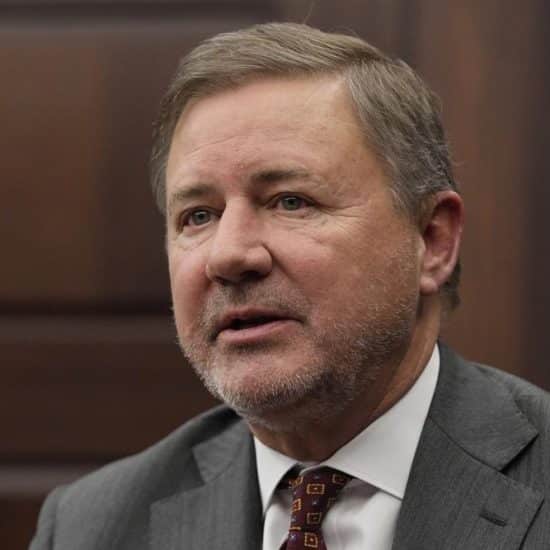Jefferson City — The Missouri Baptist Convention Executive Board can represent the convention as a corporate body and seven individuals can be included as plaintiffs in a legal action the MBC filed against five institutions.
Cole County Circuit Court Judge Thomas Brown issued the ruling at a hearing in Jefferson City on Dec. 15.
The hearing was the latest step in a three-year legal battle between the MBC, Windermere Baptist Conference Center, the Missouri Baptist Foundation, The Baptist Home and Word&Way.
In 2000, trustees for The Baptist Home authorized changes in The Home's corporate charter to allow the entity to elect its own trustees. In the past, the convention had elected them. The other institutions made similar changes in 2001. The MBC filed legal action against the five in August 2002.
Judge Brown set May 15, 2006, as the deadline for attorneys for both sides to file dispositive motions (motions that will move the case to an end) and to complete discovery (the collection of additional materials or statements from the parties involved).
The judge set a status hearing for June 19, 2006. He possibly could set a trial date at that time, as well.
At the Dec. 15 hearing, MBC attorney Charles Hatfield noted the convention sought to have the Executive Board certified as a plaintiff and seven men added as interveners "in order to avoid disposing of the case on procedural grounds."
MBC lawyers based their argument on their interpretation of the Missouri Court of Appeals decision handed down in May.
After Judge Brown dismissed the convention's case in March 2004, the convention appealed his ruling. In August, a three-judge appellate panel returned the case to Cole County.
The appellate court supported Judge Brown's ruling that the six churches — Springhill Baptist Church, Springfield; Oakwood Baptist Church, Kansas City; Concord Baptist Church, Jefferson City; and First Baptist churches of Arnold, Bethany and Branson — did not have standing, or the legal right, to represent messengers to MBC annual meetings.
Both the Cole County judge and the appellate court recognized messengers as members. But the Appeals Court held that the Executive Board has the legal right to sue as the convention's representative because the board is composed of members, and members elect its officers.
The appellate court did not identify which Executive Board should represent the convention. The board's make-up changes as members complete their terms of service and new board members are elected at annual meetings.
In his Dec. 15 ruling, Judge Brown also did not clarify whether the current board or a previous one would represent the MBC.
On Oct. 26, six individuals filed a motion to intervene as plaintiffs. Those six include Robert Curtis, pastor of Ballwin Baptist Church and MBC president in 2002; Lyn Heying, messenger from New Oakland Baptist Church, Ralls County; Mitchell Jackson, pastor of Miner Baptist Church, Sikeston, and 2005 MBC president; James Moore, messenger from Concord Baptist Church, Festus; James Plymale, messenger from First Baptist Church, Villa Ridge, and Franklin Baptist Association director of missions; and Ralph Sawyer, newly elected MBC president.
The first five had filed a second lawsuit against the institutions in October 2004. That case was dismissed on Oct. 12, primarily because it duplicated the first lawsuit.
On Dec. 6, Randy Comer, pastor of First Baptist Church, Bethany, also filed as an intervener.
Judge Brown ruled that the MBC could amend its lawsuit to change the plaintiffs listed. However, he would not allow attorneys to add issues included in a petition filed with the interveners' motion. That petition contained parts of the first two lawsuits and included conspiracy charges against the five entities and former MBC employees.
(12-16-05)

